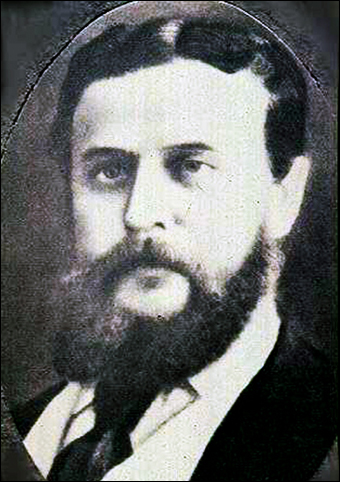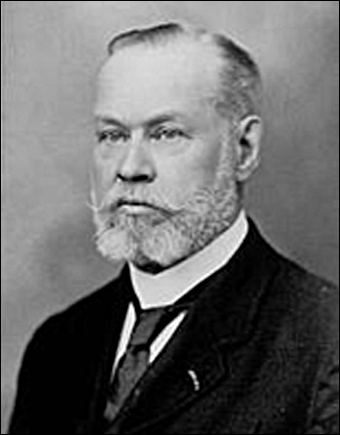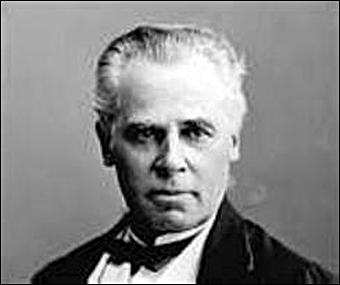
Liens de la barre de menu commune
Liens institutionnels
-
Bureau de la traduction
Portail linguistique du Canada
-
TERMIUM Plus®
-
Auteurs
- + Auverana, Iliana
- + Barber, Katherine
- + Blais, François
- + Boileau, Monique
- + Bucens, Vic
- + Cloutier, Yvan
- + Cole, Wayne
- + Collier, Linda P.
- + Collishaw, Barbara
- + Cormier, Chantal
- - Delisle, Jean
- Baudelaire translated in prison by a translation professor
- Fifty Years of Parliamentary Interpretation
- The good ship Update
- Through the Lens of History: Colourful personalities, perks and brilliant comebacks
- Through the Lens of History: French: The working language in the West
- Through the Lens of History: Historic, fateful or comical translation errors
- Through the Lens of History: Jean L’Heureux: Interpreter, false priest and Robin Hood
- Through the Lens of History: John Tanner, a white Indian between a rock and a hard place (I)
- Through the Lens of History: John Tanner, a white Indian between a rock and a hard place (II)
- Through the Lens of History: Joseph de Maistre or Alexander Pushkin? The confusion caused by Babel
- Through the Lens of History: Scheming Acadians and translators "dealt a blow to the head by fate"
- Through the Lens of History: Translating dominion as puissance: A case of absurd self-flattery?
- Voicewriting
- + Doumbia, Bréhima
- + Ethier, Sheila
- + Fitzgerald, Heather
- + Gariépy, Julie L.
- + Gawn, Peter
- + Ghearáin, Helena Ní
- + Guyon, André
- + Harries, Emma
- + Hug, Christine
- + Joe, Gregg
- + Jope, James
- + Lacroix, Kim
- + Laforge, Marc
- + Landry, Alain
- + Lapointe, Lucie
- + Lawrence, C.A.
- + Leighton, Heather
- + Lemieux, Claude
- + Leroux, Paul
- + Matsune, Heather
- + McClintock, Barbara
- + McNamer, Patrick
- + Mossop, Brian
- + Oslund, Richard
- + Ouimet, Nicole
- + Peck, Frances
- + Pontisso, Robert
- + Racicot, André
- + Roberts, David
- + Rodríguez, Nadia
- + Ross, Sheila M.
- + Roumer, Camilo
- + Samson, Emmanuelle
- + Sanders, Sheila
- + Schnell, Bettina
- + Senécal, André
- + Shatalov, Dmitry
- + Siemienska-Vachali, Maja
- + Sitarski, Mary
- + Skeete, Charles
- + Taravella, AnneMarie
- + Tautu, Doris
- + Urdininea, Frances
- + Vittecoq, Fanny
- + Wellington, Me Louise Maguire
Divulgation proactive
Avis important
La présente version de l'outil Favourite Articles a été archivée et ne sera plus mise à jour jusqu'à son retrait définitif.
Veuillez consulter la version remaniée de l'outil Favourite Articles pour obtenir notre contenu le plus à jour, et n'oubliez pas de modifier vos favoris!
La zone de recherche et les fonctionnalités
Through the Lens of History: Translating dominion as puissance: A case of absurd self-flattery?
During the London Conference (December 4, 1866 to February 11, 1867), the Fathers of Confederation put the finishing touches on the country’s draft constitution. This was the first time that a colony belonging to a European empire had gained independence through negotiation, without blood being shed. Herein lies the origins of the innovative, avant-garde Canadian way. The delegates agreed to call the new political entity the “Kingdom of Canada.” The British rejected this proposal in order to appease the republican sensibilities of Americans opposed to the existence of a monarchical government similar to that of Britain north of the border. The selected name also seemed premature and presumptuous to them.
Canadian negotiators settled on the name “Dominion of Canada,” proposed by the head of the New Brunswick delegation, Samuel Leonard Tilley (1818–1896). The word dominion was taken from the King James Bible: “He shall have dominion also from sea to sea, and from the river unto the ends of the earth” (Psalm 72:8).ª The religious convictions of Tilley, a devout man with a background in pharmacy, coloured all his political activities. In 1867, he would become the Minister of Customs in Sir John A. Macdonald’s first cabinet.
Never before had the term dominion been used to designate a state. This word was not new, however. Before 1867, it was defined as any place to which the British Crown extended, and its etymological meaning evoked a sense of subservience.1 Tilley and the other Fathers of Confederation broadened the meaning of the word, making it a virtual synonym for sovereign state. But the question remained about how to translate this vague concept that was specific to British institutions. Still in its infancy, the Canadian Confederation experienced its first bilingualism and equivalency issues.
An imposed translation
Lawyer Eugène-Philippe Dorion (1830–1872), one of the key figures in official translation in the years before and after Confederation, was admired by his contemporaries for his knowledge of Latin, Greek, English, French and a number of Aboriginal languages. He was called to the bar in 1853 and two years later was appointed as a translator to the Legislative Assembly of the Province of Canada. In 1859, he succeeded his director, D.P. Myrand, and remained in this position in the House of Commons in Ottawa.2 Dorion contributed significantly to improving the quality of French statutory documents. However, he had to bow to the wishes of Sir George-Étienne Cartier (1814–1873), who made him translate Dominion of Canada as Puissance du Canada in the British North America Act.

Dorion found it rather strange and pretentious that in French a non-industrialized colony of barely 3.5 million people should call itself a Puissance. Was the young Puissance a military, naval, economic or political power? Where did it rank on the world stage? Let us not forget that in 1867, Canada had only four provinces: Quebec, Ontario, New Brunswick and Nova Scotia. Dorion was not the only one with reservations about this translation. In the press and even within the House of Commons, the translation caused controversy and did not meet with unanimous approval.
It should be remembered that the translation produced in the spring of 1867 had no official status. [Translation] “The British Parliament had passed only an English version of the Act; … a French version of the Act was never submitted to Westminster.”3 There were, however, two translations of this Act, which received royal assent in London on March 29, 1867. The first translation was published in the Journal de Québec on March 2 and 4, 1867. The other appeared on June 1 in a special issue of the Canada Gazette along with the official English wording. It is interesting to note that the Journal de Québec translators did not render Dominion as Puissance but instead vacillated between Domaine du Canada and Royaume du Canada and also used an implicit translation.
Intervention in the House
The debate over the translation of Dominion carried over to the Parliament of the so-called “Puissance du Canada.” On March 13, 1878, the Member of Parliament for Lévis, Louis Fréchette (1839–1908), rose in the House, where he had been a member since 1874, and, speaking in French, which was rare at the time, suggested that a special committee be formed to review the French version of the Act of 1867. Among the items he wished to see corrected in this founding document was the word Puissance. As he himself had been a parliamentary translator in 1862,b he was very sympathetic to the translators’ predicament:
[Published translation] [Mr. Fréchette] held that the French translators were not responsible for this translation; it was not theirs; and in the second place, he did not intend to accuse the author of this translation of ignorance with respect to the French language. This gentleman had probably sinned owing to too great national pride in translating “Dominion” by Puissance…. He believed that the legitimate ambition of desiring to see our country some day take rank among the great powers (Puissances) of Europe [was] of a nature to pardon absurd boasting, which could not give to strangers a very fair idea of their notions of French language of which the French-Canadians were so proud….4
The author of La légende d’un peuple joined those who criticized the appropriateness of the translation imposed by Cartier. He argued that [Published translation] “the word puissance suggests the idea of power of active domination; whilst the word Dominion, on the contrary was employed in the sense of passive domination, of something which was dominated. This idea was perfectly communicated formerly in the appellation of Possessions Anglaises.”5 The distinction is subtle, but Fréchette could not accept the notion of Canada being defined as a power, arguing that the term was reserved for sovereign nations with significant influence on the international scene, which was not the case with Canada at the time.

A journalist from L’Opinion publique echoed Fréchette’s sentiments in January 1880: [Translation] “We should do away with this incorrect name ’Puissance’…. Let us be more modest and sensible. A colony should not be placed among the ranks of the world’s powers.”6
Gradual elimination
Following the Statute of Westminster, which, in 1931, officially recognized the autonomy of all the dominions in the British Empire, the Government of Canada stopped using the term Dominion, which gradually began disappearing from treaties starting in 1935. However, evidence of the term still remained in older official documents, including the Dominion Elections Act.
In the early 1950s, the revision of the Act gave rise to one last heated debate on the subject. Quebec’s Conservative members of Parliament, including Léon Balcer (Trois-Rivières) and Henri Courtemanche (Labelle), congratulated the government for wanting to eliminate the word Dominion from Canadian statutes, despite fierce opposition from many Anglophone Conservatives. One such Conservative, Davie Fulton from Kamloops, British Columbia, called the proposal “stupid and absurd.”c The Francophones, asserting that they belonged in Canada, wanted to break colonial ties to Great Britain, while the Anglophones, labelled imperialists in the French-language press, felt a deep attachment to the British Empire. In actual fact, they were torn between two loyalties—loyalty to Canada and loyalty to the Empire.
In 1951, Prime Minister Louis Saint-Laurent, a Liberal Francophone from Quebec, declared in Parliament that the word would thereafter be banned from any new official documents, then gradually eliminated.7 The word does not appear in the new Constitution Act, 1982.
A nostalgic interpretation
In a recent essay entitled A Fair Country (2008), John Ralston Saul discusses the controversy over the use of Dominion and its French translation. “Colonized” is how he referred to French translators who criticized the “political” and “domestic” translation imposed by Sir George-Étienne Cartier. By “domesticating translation,” the author means “a translation that has a particular local meaning, as opposed to one that conforms to the imperial use of language.”8 His arguments are as follows: the Fathers of Confederation knew exactly what the word Puissance meant, they were fully justified in using it—this word is the equivalent of Dominion in the Bible,d this translation also had a political meaning, and every word acquires its true meaning through the context in which it is used. The essayist concludes his argument by stating that the history of language in Canada has been characterized by a tendency to give words an interpretation and meaning that is specific to Canada (however, there is no evidence to support this generalization). Consequently, the Fathers of Confederation, intelligent men that they were, knowingly used the words Dominion and Puissance and therefore their choices were authoritative.
No one would doubt that the co-founders of the country had the best intentions in the world, but the fact remains that by calling Canada a Puissance in the late nineteenth century, they distorted the meaning of this word by seeking to Canadianize it, just as John Ralston Saul exaggerates when he says that less than four years after Confederation, “Cartier had led Canada into its reality as a continental power.”9 If the country was a continental power in 1867, has it become an international superpower in 2011? Even the most patriotic Canadians would not dare to make such a claim for fear of becoming a laughingstock.

We cannot stretch the meaning of a word with impunity, for while it is true that a word acquires its meaning through context, it also cannot escape its connotations. Redefining a word does not erase its history any more than a nation can erase its past by achieving independence. That is why a translation can be objectively inaccurate and, in this instance, it was undeniably so. John Ralston Saul criticizes the colonial elite, whom he accuses of committing a nihilistic act by deleting the words Dominion and Puissance from the country’s founding statute. His words are once again overblown. Pride in country does not exclude a certain amount of lucidity and realism.
A translator’s clout
Strictly from a translation standpoint, this case reminds us once again that translators have no rights, only duties.10 The indisputable language proficiency of Eugène-Philippe Dorion and his recognized authority as a translator weighed less heavily than the will of those who held political power. The only acceptable solution in this case was to use the word dominion in the French version, which is what Louis-Philippe Geoffrion (1875–1942)e of the Royal Society of Canada, and former Clerk of the Legislative Assembly of Quebec, did when he published his own translation of the British North America Act in 1941. His version is far superior to the previous ones.11 More recently, Ravi J. Gunnoo studied the issue from a legal standpoint and concluded that the word puissance is not equivalent to the word dominion in the fields of public law, constitutional law, international law and political science.12
We must admit that translators, like terminologists, do not receive the social recognition necessary to impose their views, even in their field of expertise. Yet they are professionals, like any other. The reason for this is that when it comes to language and translation, everyone thinks he is an expert.
More than one politician would benefit from meditating on what the academician and translator Nicolas Perrot d’Ablancourt (1606–1664) once wrote: [Translation] “Not everyone is able to judge a translation, although everyone claims to have the necessary knowledge. Both here and elsewhere, Aristotle’s maxim should serve as a rule—every man must believe in his own art.”13 Fortunately, with time, translators sometimes prove to be right.
I would like to thank Alain Otis for his comments and for the additional information he provided.
Remarks
- a A similar passage is found in Zechariah 9:10, from which the country’s motto, A mari usque ad mare, was taken. However, it was not until after British Columbia joined the Dominion of Canada in 1871 that the expression “From Sea to Sea” was adopted as the motto. It was incorporated into the country’s coat of arms in 1921.
- b At the time of his death, he left 4,000 terminology records.
- c « Le Parlement décide d’éliminer le mot Dominion de la loi des élections » (Parliament decides to eliminate the word “Dominion” from the Dominion Elections Act), Le Devoir, December 15, 1951, p. 1. Davie Fulton, Minister of Justice in Diefenbaker’s cabinet, is known as the father of the Fulton-Favreau formula for amending the Constitution. He was opposed to making piecemeal constitutional amendments.
- d In fact, this word is often translated in French Bibles as domination or dominer in its verb form.
- e Author of Zigzags autour de nos parlers (3 vol. 1924–1927) and main compiler of the Glossaire du parler français au Canada (1930).
Notes
- 1 Jean-Charles Bonenfant, “Une nouvelle traduction de notre constitution,” Revue du Barreau du Québec, Vol. 5, 1944, p. 40.
- 2 Dictionary of Canadian Biography Online.
- 3 Jean-Charles Bonenfant, op. cit., pp. 36-37.
- 4 Debates of the House of Commons, March 13, 1878, p. 1084.
- 5 Ibid., p. 1086.
- 6 A. Gélinas, “Échos,” Vol. 11, No. 5 (January 29, 1880), p. 50. A translator himself, A. Gélinas became the head translator at Debates in 1883.
- 7 John Ralston Saul, A Fair Country: Telling Truths about Canada, Viking, 2008, p. 258.
- 8 Ibid., p. 253.
- 9 Ibid., p. 255.
- 10 Maurice-Edgar Coindreau, Mémoires d’un traducteur, Gallimard, 1974, p. 131.
- 11 Louis-Philippe Geoffrion, “Constitution de 1867 et Statut de Westminster” (new translation of official text), Règlement annoté de l’Assemblée législative, Assemblée législative, 1941, pp. 1-28.
- 12 “La Constitution canadienne en traduction : quelques pistes de réflexion,” Meta, Vol. 50, No. 4, 2005.
- 13 “Préface,” Annales de Tacite, in Roger Zuber, Nicolas Perrot d’Ablancourt, Lettres et préfaces critiques, Librairie Marcel Didier, 1972, pp. 118-125.
© Services publics et Approvisionnement Canada, 2025
TERMIUM Plus®, la banque de données terminologiques et linguistiques du gouvernement du Canada
Outils d'aide à la rédaction – Favourite Articles
Un produit du Bureau de la traduction


